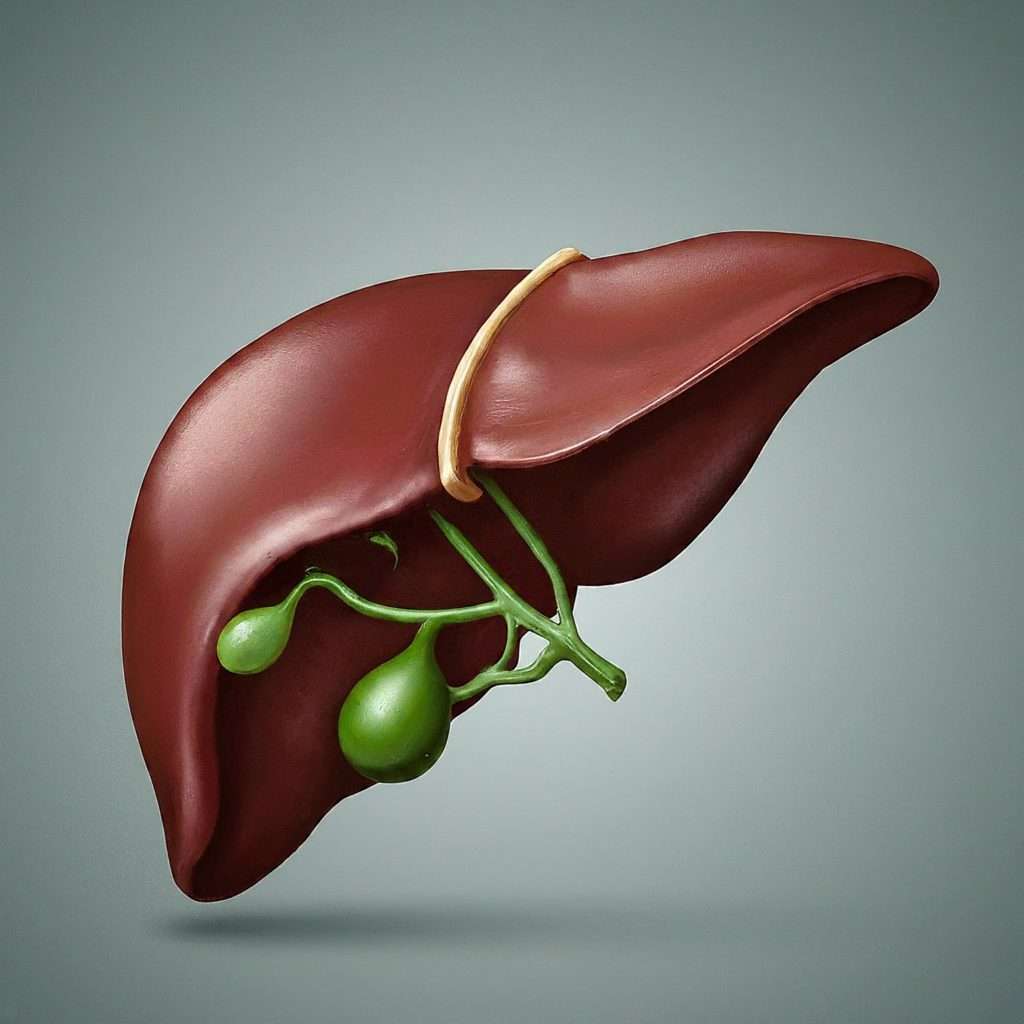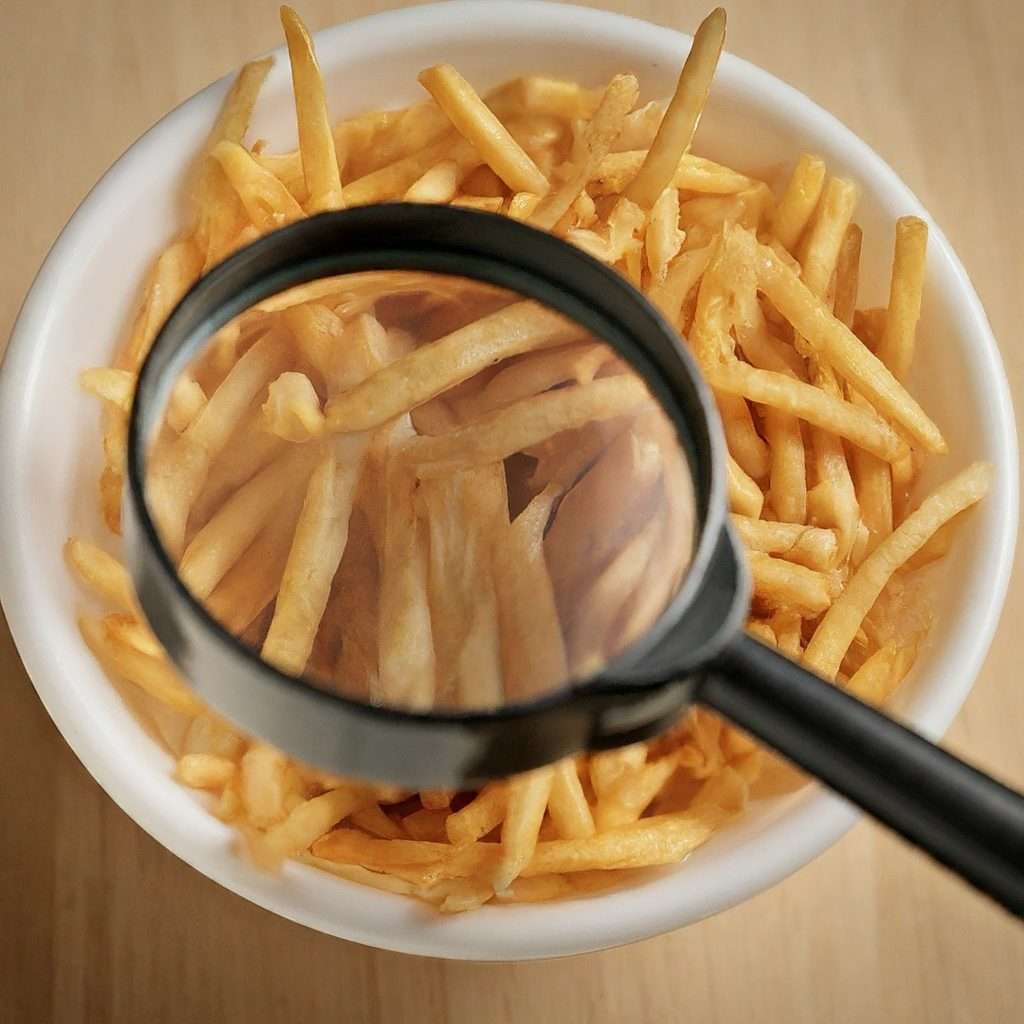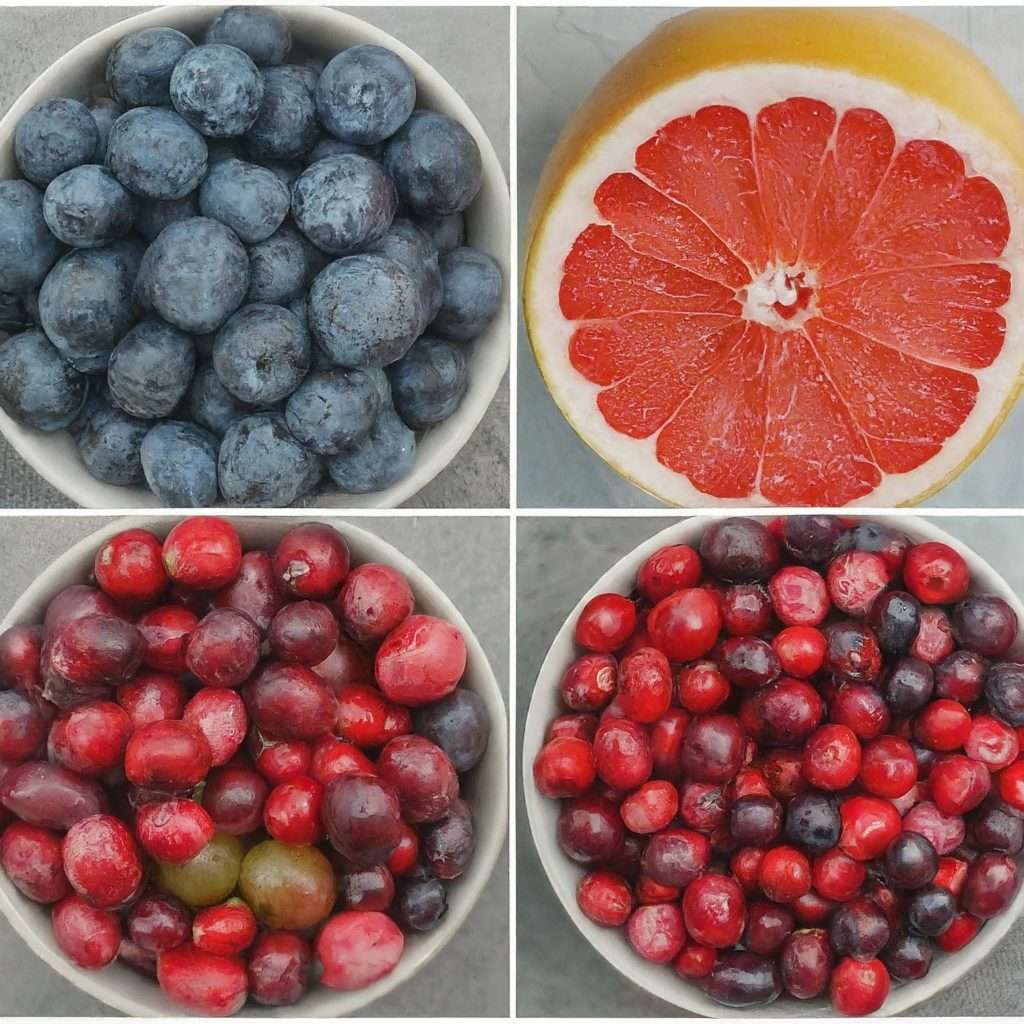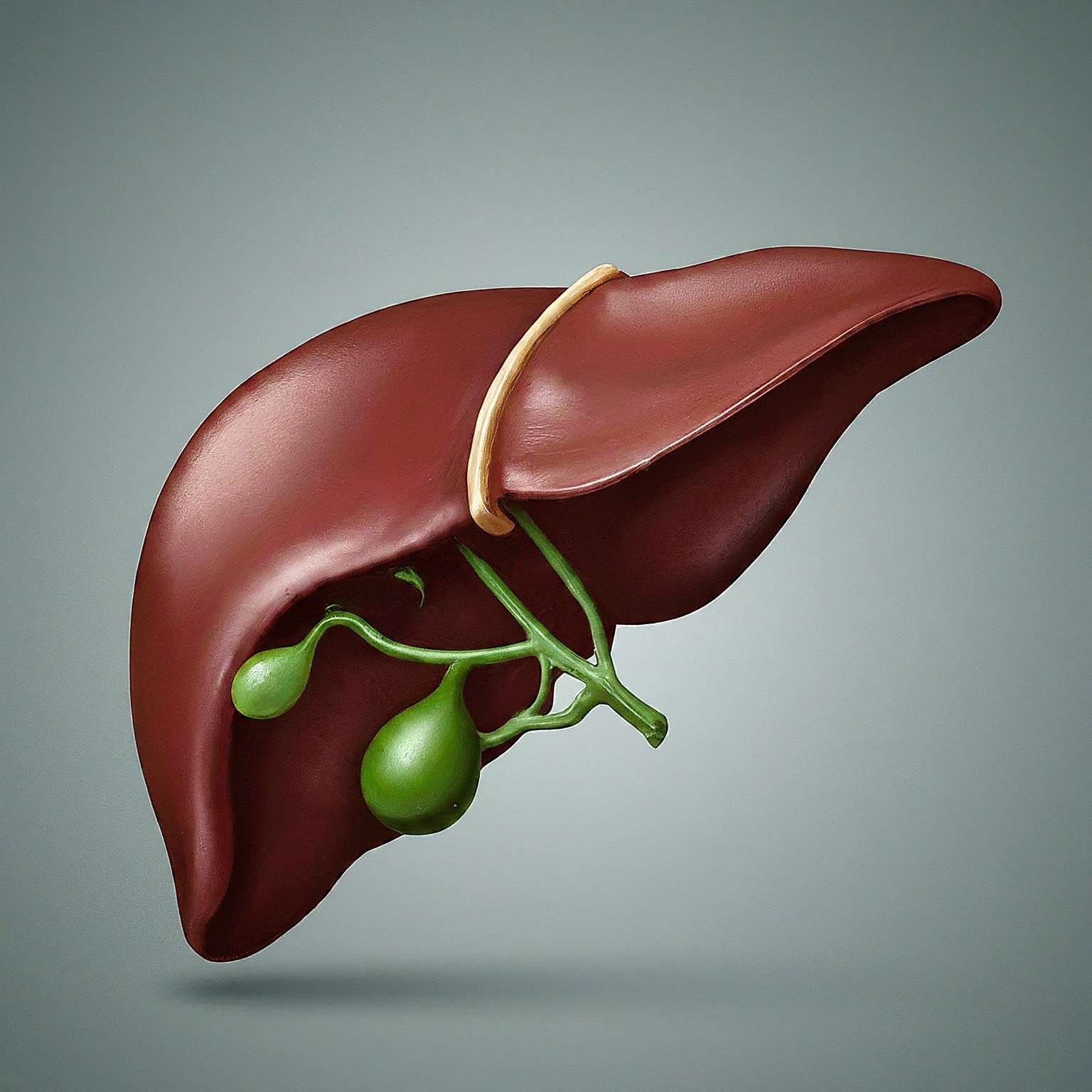Introduction
Did you know that your liver is one of the most important organs in your body? It performs over 500 vital functions, such as filtering toxins, breaking down fats, and storing vitamins and minerals. Your liver is also responsible for regulating your blood sugar, cholesterol, and hormone levels. In other words, your liver is essential for your overall well-being.
However, your liver can also be easily damaged by the foods you eat. While most people are aware of the dangers of alcohol for the liver, there are other less obvious foods that can also harm it. These foods can cause inflammation, fat accumulation, and scarring in your liver, leading to serious health problems such as fatty liver disease, cirrhosis, and liver cancer.
In this blog post, we will reveal the sneaky liver saboteurs in your diet and how you can avoid them. We will also share some healthy alternatives and lifestyle tips to support your liver and overall health.
The Liver: A Vital Organ

Your liver is the largest internal organ in your body, weighing about 1.5 kg. It is located in the upper right quadrant of your abdomen, below your diaphragm. Your liver has two main lobes, which are further divided into eight segments. Each segment has its own blood supply and bile duct.
Your liver performs many functions that are crucial for your survival, such as:
- Detoxification: Your liver filters your blood and removes harmful substances such as alcohol, drugs, and environmental toxins. It also produces bile, which helps digest fats and eliminate waste products from your body.
- Metabolism: Your liver converts the nutrients you consume into energy, proteins, and hormones. It also regulates your blood sugar, cholesterol, and hormone levels, keeping them in balance.
- Nutrient Storage: Your liver stores excess glucose as glycogen, which can be used for energy when needed. It also stores vitamins A, D, E, K, and B12, as well as iron and copper, which are essential for your health.
As you can see, your liver is a vital organ that affects every aspect of your health and well-being. Therefore, it is important to take good care of your liver and prevent any damage to it.
Foods That Harm the Liver
Unfortunately, many of the foods we eat today can harm our liver and compromise its functions. These foods include:
High-Fructose Corn Syrup (HFCS)
High-fructose corn syrup (HFCS) is a type of sugar that is derived from corn. It is widely used as a sweetener in processed foods and beverages, such as sodas, candies, cakes, cookies, and cereals. HFCS is cheaper and sweeter than regular sugar, which makes it appealing to food manufacturers and consumers.

However, HFCS is also detrimental to your liver health. Unlike regular sugar, which is composed of equal amounts of glucose and fructose, HFCS contains more fructose than glucose. Fructose can only be metabolized by the liver, which means that it puts a lot of stress on the organ. Excessive fructose intake can lead to fatty liver disease, which is a condition where fat accumulates in the liver cells, impairing their function. Fatty liver disease can also cause insulin resistance, which is a precursor to type 2 diabetes and metabolic syndrome.
To protect your liver from HFCS, you should limit your consumption of processed foods and beverages that contain it. You should also read the labels of the products you buy and look for alternative names for HFCS, such as corn syrup, corn sugar, or glucose-fructose syrup.
Trans Fats
Trans fats are a type of fat that is created by adding hydrogen to vegetable oils, making them solid at room temperature. Trans fats are used to extend the shelf life and improve the texture of processed foods, such as margarine, shortening, baked goods, fried foods, and snacks. Trans fats are also found naturally in small amounts in some animal products, such as dairy and meat.
Trans fats are harmful to your liver because they increase inflammation and raise your LDL (bad) cholesterol levels, which can damage your liver cells and cause scarring. Trans fats can also lower your HDL (good) cholesterol levels, which can increase your risk of heart disease and stroke.
To protect your liver from trans fats, you should avoid or limit your intake of processed foods that contain them. You should also check the labels of the products you buy and look for the words “partially hydrogenated oil” or “hydrogenated oil”, which indicate the presence of trans fats. You should also choose healthier fats, such as olive oil, canola oil, or avocado oil, which are rich in monounsaturated and polyunsaturated fats that are beneficial for your liver and heart.
Excessive Sugar Consumption
Sugar is another common ingredient in many of the foods we eat today, especially refined sugars, such as white sugar, brown sugar, and powdered sugar. Sugar is added to enhance the flavor, color, and texture of foods and beverages, such as cakes, pies, ice cream, chocolate, candy, and soft drinks. Sugar is also found naturally in some foods, such as fruits, honey, and milk.
Sugar is harmful to your liver because it can cause non-alcoholic fatty liver disease (NAFLD), which is similar to fatty liver disease caused by alcohol. NAFLD occurs when the liver is overloaded with sugar, which is converted into fat and stored in the liver cells. This can lead to inflammation and scarring in the liver, which can progress to more serious conditions, such as non-alcoholic steatohepatitis (NASH), cirrhosis, and liver cancer.
To protect your liver from excessive sugar consumption, you should limit your intake of refined sugars and processed foods that contain them. You should also moderate your intake of natural sugars, such as fruits, honey, and milk, and choose low-glycemic options, such as berries, apples, and plain yogurt, which do not spike your blood sugar levels. You should also replace sugar with healthier sweeteners, such as stevia, monk fruit, or erythritol, which do not affect your liver or blood sugar levels.
High-Sodium Foods
Sodium is a mineral that is essential for your body, as it helps regulate your fluid balance, blood pressure, and nerve and muscle function. However, too much sodium can be harmful to your liver, as well as your kidneys, heart, and brain. Sodium is found in salt, which is added to many foods and beverages, such as canned foods, processed meats, cheese, sauces, soups, and snacks. Sodium is also found naturally in some foods, such as seafood, eggs, and dairy.
Sodium is harmful to your liver because it can cause fluid retention and edema, which is swelling of the tissues due to excess fluid. This can put pressure on your liver and impair its function. Sodium can also increase your blood pressure, which can damage your liver and other organs. High-sodium diets can also increase your risk of cirrhosis, which is scarring and hardening of the liver, and ascites, which is fluid accumulation in the abdomen.
To protect your liver from high-sodium foods, you should reduce your intake of salt and processed foods that contain it. You should also check the labels of the products you buy and look for the sodium content, which should not exceed 2,300 mg per day, according to the American Heart Association. You should also use herbs, spices, lemon juice, vinegar, or other salt-free seasonings to add flavor to your foods.
Healthy Alternatives and Lifestyle Tips
While avoiding the foods that harm your liver is important, it is not enough to ensure your liver health. You also need to include some healthy alternatives and lifestyle tips to support your liver and overall well-being. These include:
Whole Foods and Balanced Diet
One of the best ways to protect your liver is to eat a whole foods and balanced diet, which consists of foods that are natural, unprocessed, and nutrient-dense. These foods include fruits, vegetables, lean proteins, whole grains, nuts, seeds, and legumes. These foods provide your liver with the vitamins, minerals, antioxidants, and fiber it needs to function properly and prevent damage. They also help regulate your blood sugar, cholesterol, and hormone levels, which are influenced by your liver.
Some examples of liver-friendly foods are:
- Fruits: Berries, apples, grapes, citrus fruits, and melons are rich in vitamin C, antioxidants, and water, which help flush out toxins and reduce inflammation in your liver.
- Vegetables: Leafy greens, cruciferous vegetables, carrots, beets, and garlic are high in vitamin A, vitamin K, folate, and sulfur, which help protect your liver from oxidative stress and boost its detoxification capacity.
- Lean Proteins: Chicken, turkey, fish, eggs, and tofu are low in fat and high in protein, which help repair and regenerate your liver cells and prevent fat accumulation in your liver.
- Whole Grains: Oats, barley, quinoa, and brown rice are high in fiber, which help lower your cholesterol and blood sugar levels and prevent constipation, which can affect your liver function.
- Nuts and Seeds: Almonds, walnuts, sunflower seeds, and flaxseeds are rich in omega-3 fatty acids, vitamin E, and selenium, which help reduce inflammation and oxidative stress in your liver and improve its lipid profile.
- Legumes: Beans, lentils, chickpeas, and soybeans are high in protein, fiber, and iron, which help support your liver function and prevent anemia, which can affect your liver health.

By eating a whole foods and balanced diet, you will not only nourish your liver, but also your whole body and mind. You will also enjoy a variety of delicious and satisfying foods that will keep you full and energized.
Limiting Alcohol Consumption
Another way to protect your liver is to limit your alcohol consumption, as alcohol is one of the main causes of liver damage. Alcohol is metabolized by the liver, which means that it produces toxic byproducts that can harm your liver cells and cause inflammation. Alcohol can also interfere with your liver’s functions, such as detoxification, metabolism, and nutrient storage.
Excessive alcohol consumption can lead to various liver problems, such as alcoholic fatty liver disease, alcoholic hepatitis, and alcoholic cirrhosis. These conditions can cause symptoms such as jaundice, abdominal pain, nausea, vomiting, fatigue, and weight loss. They can also increase your risk of liver cancer and liver failure.
To protect your liver from alcohol, you should follow the recommended guidelines for moderate drinking, which are:
- No more than one drink per day for women and two drinks per day for men.
- A drink is defined as 12 ounces of beer, 5 ounces of wine, or 1.5 ounces of liquor.
- Avoid binge drinking, which is consuming more than four drinks for women and five drinks for men in a single occasion.
You should also avoid drinking alcohol if you have any existing liver problems, are taking medications that can interact with alcohol, or are pregnant or breastfeeding. You should also consult your doctor before drinking alcohol if you have any medical conditions or concerns.
If you find it hard to limit your alcohol consumption, you should seek professional help and support. There are many resources and programs available to help you overcome alcohol addiction and improve your liver health.
Regular Exercise
The last way to protect your liver is to engage in regular exercise, as exercise is beneficial for your liver and overall health. Exercise helps improve your metabolism, which means that it helps your liver break down fats and sugars more efficiently. Exercise also helps reduce inflammation, which means that it helps your liver heal and prevent damage. Exercise also helps lower your blood pressure, cholesterol, and blood sugar levels, which are influenced by your liver.
Regular exercise can also help prevent or reverse fatty liver disease, which is a common liver problem caused by excess fat accumulation in the liver cells. Exercise can help burn the excess fat and improve the function and structure of your liver.
To protect your liver with exercise, you should aim for at least 150 minutes of moderate-intensity aerobic exercise per week, such as brisk walking, jogging, cycling, or swimming. You should also include some strength training exercises at least twice a week, such as lifting weights, doing push-ups, or using resistance bands. You should also stretch your muscles before and after exercising to prevent injuries and improve your flexibility.
You should also choose an exercise that you enjoy and that suits your fitness level and goals. You should also vary your exercise routine to avoid boredom and plateaus. You should also listen to your body and rest when you need to. You should also consult your doctor before starting any new exercise program, especially if you have any medical conditions or concerns.
By exercising regularly, you will not only boost your liver health, but also your physical and mental well-being. You will also feel more energetic, confident, and happy.
Conclusion
In conclusion, your liver is a vital organ that affects every aspect of your health and well-being. Therefore, it is important to protect your liver from the foods that harm it, such as high-fructose corn syrup, trans fats, excessive sugar, and high-sodium foods. You should also include some healthy alternatives and lifestyle tips to support your liver, such as eating a whole foods and balanced diet, limiting your alcohol consumption, and exercising regularly.
By following these simple and practical steps, you will not only improve your liver health, but also your overall health and quality of life. You will also unlock the truth about your liver and its amazing abilities.
We hope you enjoyed this blog post and learned something new and useful. If you have any questions or comments, please feel free to leave them below. We would love to hear from you and help you with your liver health journey. Thank you for reading and stay tuned for more blog posts from us!
